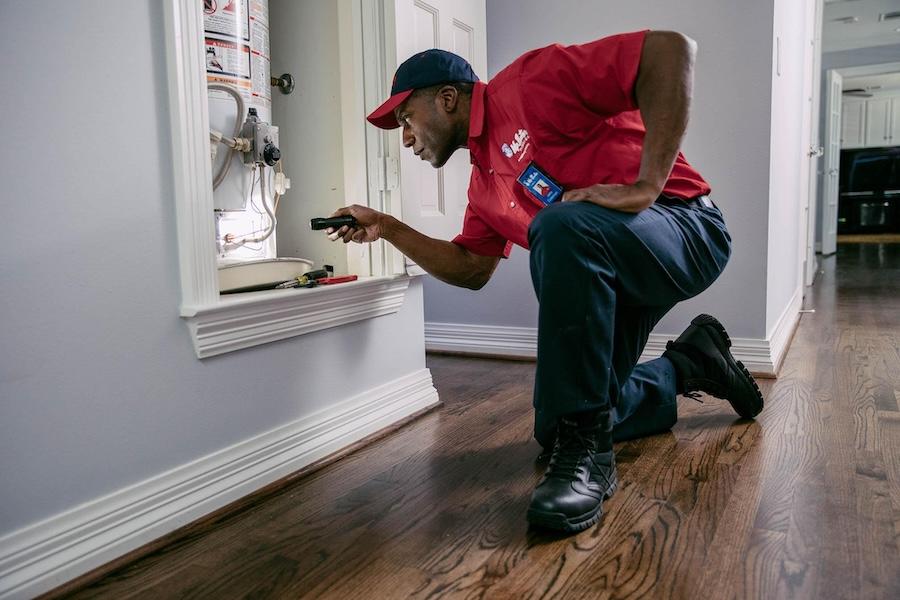Call This Sunday to Get $50 Off
Schedule a Local Plumber in Morgantown Area - Call us Now to Get $35 OFF.
4.8 / 5 Ratings based on 794 reviews Great Plumbers, Great Reviews
Call This Sunday to Get $50 Off
Schedule a Local Plumber in Morgantown Area - Call us Now to Get $35 OFF.

Hot showers are the one luxury many of us cannot do without, especially after a long day at work. However, most of us hate nothing more than when the supply of hot water is abnormally cut suddenly, leaving us with cold water, or in a similar way, extremely hot water, as we cannot tolerate either. Luckily, most of the time, this problem is related to the settings of the water heater and can be fixed relatively quickly. In this article, we’ll go over how you can adjust the settings of the water heater and what to do if the problem doesn’t go away.
Even though adjusting the temperature is a relatively easy task, this doesn’t mean that there aren’t any risks involved. In fact, it’s a good idea for you to remember that whenever you’re dealing with water or heat, you should be extra cautious. So, if you have a gas water heater, make sure to turn off the gas supply, and if you have an electric one, make sure to turn off the electricity. Also, consider wearing protective garments such as gloves and goggles.
For the next part, you’ll need to locate the thermostat. If yours is an electric water heater, you may look for a metal panel on the tank's side. When you take off this panel, you can access the insulation panel, and most of the time, the thermostat will be behind this. For electric heaters, there are usually two. For gas water heaters, look at the bottom of the tank.
When you access the thermostat dial, you can use a flat-blade screwdriver to adjust the thermostat to the desired temperature. To raise or lower the temperature, turn clockwise or counterclockwise. But how will you know what the ideal temperature should be? Well, the EPA advises the water heater to be set to 120 degrees because even though it's hot enough to prevent certain pathogens from living inside your water, it’s also not hot enough to cause a burning risk.
Now, it’s time to make sure that new temperature setting is actually working. Turn on the gas source or the electricity and start your water heater. Let the heater work for a while, and after that, turn on the shower and check the water's temperature.
Even though it’s an easy task, sometimes calling in a professional plumber to regulate the inconsistent water temperatures is the best option. Observe the water heater carefully. If you see an obvious leak from the tank, or hear odd noises emanating, or if the problem doesn’t go away even after you adjust the temperature. This might indicate a more serious problem, and water heater repair might be needed. Dealing with water heaters can be dangerous for homeowners, so we don’t advise you to try DIY methods.
If even after you’ve made adjustments in the settings the problem doesn’t go away, or if other signs accompany the troubles with your water heater, you don’t need to worry because professional plumbers at Mr. Rooter Plumbing are only a phone call away. Your daily lives are interrupted a great deal when you don’t have the right water heat, and our goal is to bring back your water's efficiency, safety, and ideal temperature. Call us today to learn more about the plumbing services we provide.
Is your kitchen sink unusually slow? Have you noticed a persistent odor coming from your…
Read More+Low water pressure in your toilet can be very frustrating when the toilet won’t flush…
Read More+As a property owner, dealing with a water line replacement can be both stressful…
Read More+